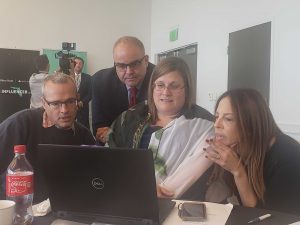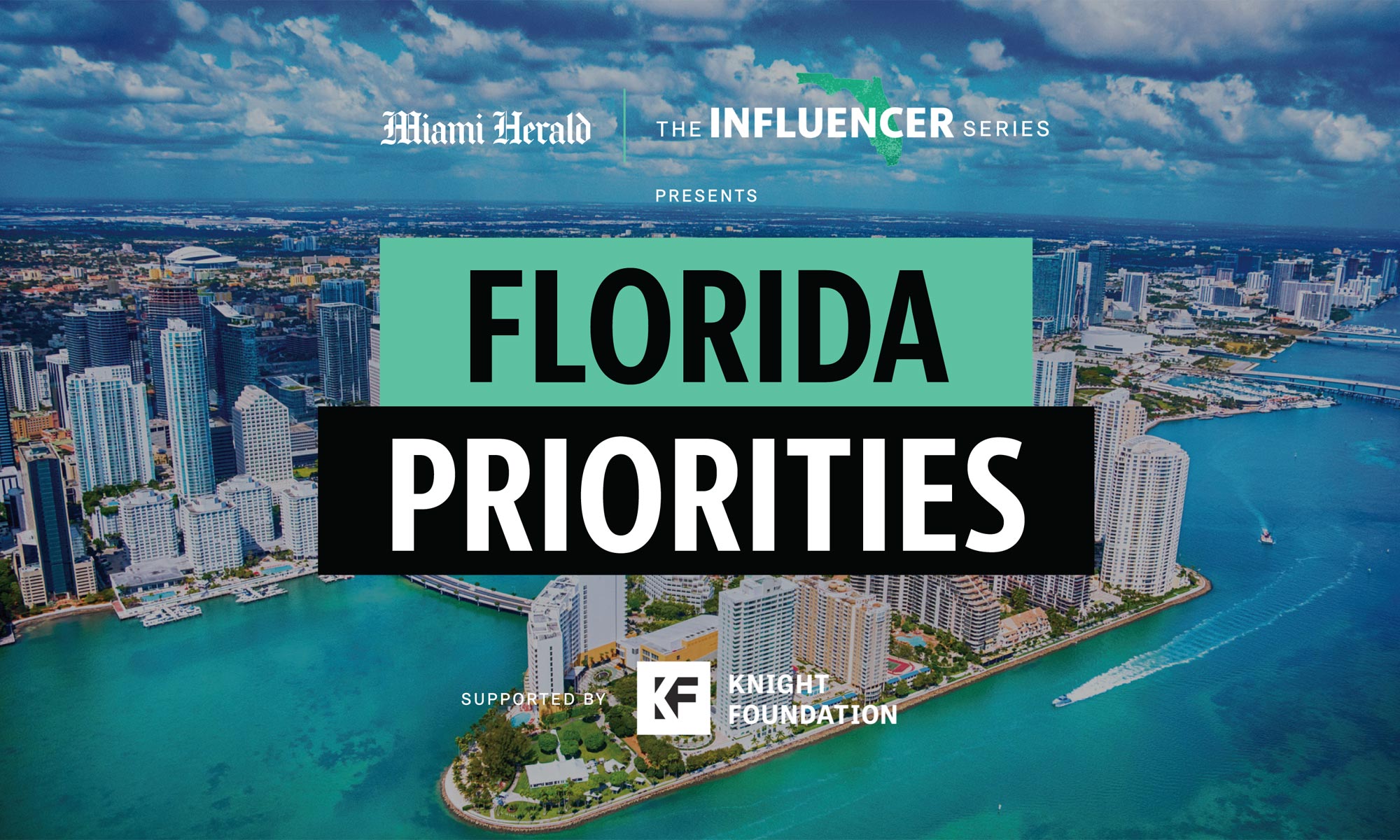
By Dylan Hart
University of South Florida – St. Petersburg
Before rising sea levels change the map of Florida, the economic impact of the coming catastrophe could slam Florida’s economy.
Four influencers met at the Miami Herald’s second Florida Priorities Summit at the University of Miami on Nov. 18 to discuss solutions to Florida’s environmental issues. Among those problems was the potential for an economic crisis in the state caused by climate change.
“Long before the sea laps at somebody’s doorstep, real estate values are going to tank,” said Curtis Morgan, environmental editor at the Herald and assigned “topic expert” for the group.
The group believes that because of impending environmental issues like sea level rise in Florida, confidence in the state’s real estate market could fall, leading to economic problems for state and local governments which could compound the issues presented by climate change.
Without sufficient funding from a lucrative tourist economy and a willing tax base, the group said that infrastructure used to fight sea level rise — like drainage pumps and sewers — would be difficult to establish and maintain.
The influencers were quick to identify Florida’s current and future environmental struggles as a “climate crisis.”
“Just imagine what happens to our state and our tax base if all these counties are trying to address these issues at the same time that investors leave, the tax base is diminishing, flood insurance is going up,” said Xavier Cortada, an environmental artist and professor at the University of Miami. “Then we don’t have the money. We’re in a state of crisis.
“We’re not addressing the issue. We’re doing it on a tax structure that’s not sustainable for what’s to come — this is not business as usual, this is — we’ve got a problem.”
The seas are expected to increase two feet by 2060, which could swallow a lot of low-lying areas in the state. Another four feet is expected by 2100, which Morgan said would “remake the map of Florida.”
Climate scientists have identified South Florida, especially the Miami metropolitan area, as particularly vulnerable to sea level rise. But because Miami is a massive tax base for the state, the economic impacts of sea level rise could hit other parts of Florida as well.
On top of that, the possibility of large swathes of people moving inland from the coast to escape sea level rise could have devastating effects on Florida’s infrastructure and economy. It’s a difficult problem to address, Cortada said, because transforming low income areas to high density zones could create “climate gentrification.”
“There’s huge swathes cultural heritage and families … people who have a lot to lose by selling at today’s prices and having nowhere to go,” he said. “I don’t know how you reconcile that here.”
The influencers identified algae blooms and red tide due to water pollution as another key issue which could impact tourism, agriculture and resources in Florida, thereby impacting the state economy.
“I think that, for lack of a better word, the tide is turning here,” said Steve Davis, senior ecologist at the Everglades Foundation. With massive real estate value loss in Lee and Martin counties over the summer of 2013 after algae blooms, Davis feels that there’s a recognition among citizens that there is a “cost of inaction.”
“I think there’s a growing recognition from people that were on either side of this issue 10 years ago recognizing that we’ve got to do something,” Davis said.
Although the issues are clear, the influencers suggested solutions to the looming threats. Some were easier than others.
They suggested more appropriations from governments at all levels for research funding, regulation oversight and infrastructure solutions, but acknowledged that it will require legislators to take an interest in the issue.
“The science is really well understood,” said Julie Wraithmell, the chair of the group and executive director of Audubon Florida. “What we need now is action.”
The group was particularly concerned about increasing regulations as a solution, arguing unanimously that regulations on businesses in Florida are not sufficient to prevent environmental threats.
“We have a state where regulation is a bad word,” Cortada said. “We’re trying to influence the legislature to understand that.”
But education — that is, making citizens “environmentally literate” to understand the issues and how they might affect them — was just as impactful to the influencers as the money.
“All of these issues must be viewed through an environmental lens,” said Michelle Suskauer, an attorney at Dimond Kaplan & Rothstein, P.A. “Housing, healthcare, transportation, the economy, education — all of them. All of these issues are interrelated and there has to be an environmental filter.”
Davis added: “The environment is everything. It’s our home.”
